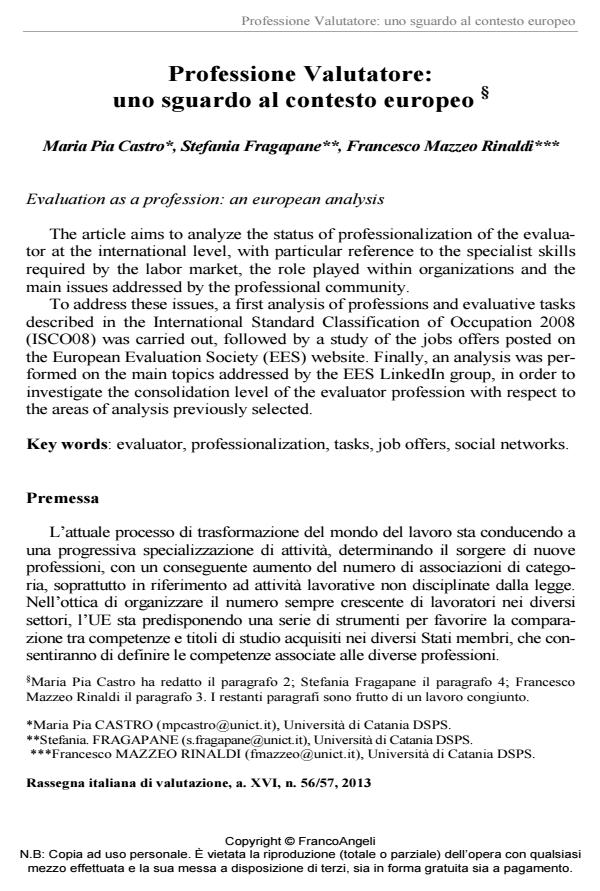Professione Valutatore: uno sguardo al contesto europeo
Titolo Rivista RIV Rassegna Italiana di Valutazione
Autori/Curatori Maria Pia Castro, Stefania Fragapane, Francesco Mazzeo Rinaldi
Anno di pubblicazione 2014 Fascicolo 2013/56-57
Lingua Italiano Numero pagine 30 P. 198-227 Dimensione file 308 KB
DOI 10.3280/RIV2013-056010
Il DOI è il codice a barre della proprietà intellettuale: per saperne di più
clicca qui
Qui sotto puoi vedere in anteprima la prima pagina di questo articolo.
Se questo articolo ti interessa, lo puoi acquistare (e scaricare in formato pdf) seguendo le facili indicazioni per acquistare il download credit. Acquista Download Credits per scaricare questo Articolo in formato PDF

FrancoAngeli è membro della Publishers International Linking Association, Inc (PILA), associazione indipendente e non profit per facilitare (attraverso i servizi tecnologici implementati da CrossRef.org) l’accesso degli studiosi ai contenuti digitali nelle pubblicazioni professionali e scientifiche.
The article aims to analyze the status of professionalization of the evaluator at the international level, with particular reference to the specialist skills required by the labor market, the role played within organizations and the main issues addressed by the professional community. To address these issues, a first analysis of professions and evaluative tasks described in the International Standard Classification of Occupation 2008 (ISCO08) was carried out, followed by a study of the jobs offers posted on the European Evaluation Society (EES) website. Finally, an analysis was performed on the main topics addressed by the EES LinkedIn group, in order to investigate the consolidation level of the evaluator profession with respect to the areas of analysis previously selected. Key words: evaluator, professionalization, tasks, job offers, social networks
Maria Pia Castro, Stefania Fragapane, Francesco Mazzeo Rinaldi, Professione Valutatore: uno sguardo al contesto europeo in "RIV Rassegna Italiana di Valutazione" 56-57/2013, pp 198-227, DOI: 10.3280/RIV2013-056010